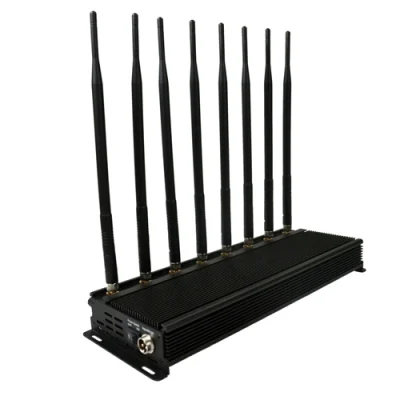The popularity of mobile phones has not only changed the way we communicate in our daily lives, but also brought many challenges, especially in prison environments. The use of illegal mobile phones has become a serious problem facing prison management in countries around the world. cell phone jammer With the advancement of technology, cases of prisoners in prisons organizing criminal activities through mobile phones are common. GPS jammer Therefore, how to effectively block mobile phone signals in prisons and prevent illegal communications has become an important issue for governments and judicial institutions in various countries. The mobile phone blocking system in the Bio Bio Prison Complex provides an efficient and advanced solution for this.Wifi jammer
Mobile phone problems in Chilean prisons
Chile’s prison system has encountered many difficulties in dealing with prisoners’ illegal use of mobile phones.signal jammer Prisoners use mobile phones to conduct criminal command, organize criminal groups, and maintain close contact with the outside world. This not only threatens the security of prisons, but also affects the social security outside prisons.
Since March 2024, the Bio Bio Prison Complex has begun to implement a new mobile phone signal blocking technology aimed at preventing prisoners from continuing to engage in criminal activities through illegal mobile phones. The new system will affect about 10,000 prisoners nationwide, accounting for 20% of the national prison population in Chile. This technology is not just an ordinary jamming device, it has the ability to accurately identify and block illegal devices.
Breakthrough of new technology
Compared with traditional signal blocking technology, the biggest breakthrough of the new system is its targeting and intelligence. Usually, the blocking system used in prisons will interfere with all signals in a certain area, causing the normal communication of prison managers, staff, and even nearby residents to be affected. However, the new system in Bio Bio Prison is equipped with a computer control system that can accurately scan the prison area, identify which mobile phones are illegal, and then selectively block them.
The system works by directing the jamming signal through the antenna and ensuring that it will not affect residents near the prison. Engineers pointed out that as long as the direction of the antenna is adjusted correctly, the surrounding community will not feel the signal interruption. This can effectively prevent prisoners from using mobile phones to commit crimes, and ensure the continuation of normal social communications.
Economic and technical challenges
Despite the widespread recognition of this technology, the Chilean government still faces huge financial pressure. As pointed out by Justice Minister Luis Cordero, it is expected to cost more than 3 billion pesos to implement mobile phone blocking in the Pedro Monte area alone. If all prisons in the country were to deploy the system, it would likely cost about 600 billion pesos, equivalent to one-third of the gendarmerie’s annual operating budget.
Based on financial constraints, the Chilean government has prioritized 15 key prisons for the installation of signal blocking systems, with plans to complete these projects between 2024 and 2025. With the gradual implementation of these blocking systems, the security of Chilean prisons is expected to be significantly improved.
Impact and Outlook
The successful implementation of this technology will not only help prevent prisoners from engaging in illegal activities through their mobile phones, but also improve prison management efficiency. Its promotion in Chile may have a demonstration effect on prison management in other countries, especially in those countries where the problem of illegal mobile phones is equally serious.










